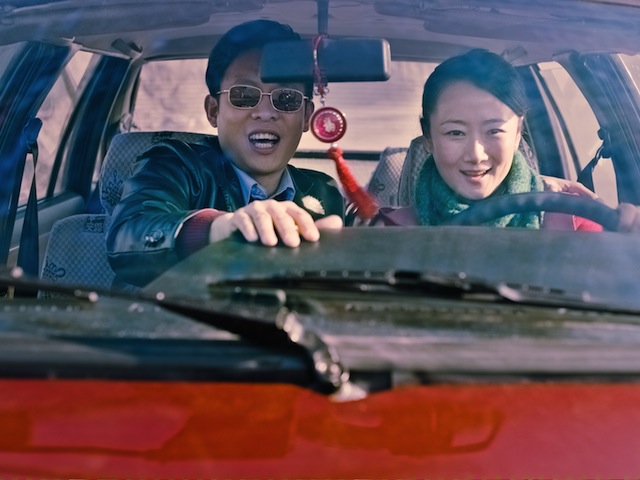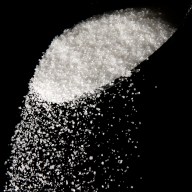‘Mountains May Depart’ For nearly two decades, Chinese filmmaker Jia Zhangke wasn’t what you’d call “accessible.” Mysterious, cryptic, sometimes long, mixing documentary and fiction, concerning specific plaints about his country so charged they were often banned back home — his films weren’t for casual audiences, and even some committed art film types have had to watch a few of them to get on his rich and unique wavelength. “Mountains May Depart” is the second Jia cinephiles could show friends who aren’t cinephiles, following the 2013 anthology outing “A Touch of Sin.” But even these two require being acquainted with his homeland as well as the even more challenging fare that came before. That’s particularly true of “Mountains,” which could otherwise come across to newbs as a failed melodrama. Spanning a quarter-century over three segments, “Mountains” is, succinctly put, a three-part chronicle of a nation losing its identity to Westernization. The bad times begin with the good times of 1999, with China newly flush with money, and its three heroes — bubbly Tao (Zhao Tao, Jia’s regular and real-life wife), cocky and hissable Jingsheng (Zhang Yi) and sullen, poor Liangzhi (Liang Jingdong) — rocking the carefree zeal of misdirected youth. There’s a trusty love triangle: Linagzhi’s in love with Tao but Tao feels it’s more pragmatic to go with Zhang, who’s noveau riche and quick to show off his fancy new Volkswagen. RELATED: Review: “Ingrid Bergman in Her Own Words” is an intimate look at an icon Life, naturally, will disappoint them, and by the time the film has jumped to 2014 —with the film’s title finally copping up, as though the movie were beginning for real a full hour in — Tao and Jingsheng have split, and the working class Linagzhi is succumbing to ill health from an adulthood spent in coal mines. Its final stretch hops to 2025, when China’s youth have relocated to Australia and adopted English as their primary (and in many cases only) language. Tao, our nominal lead, is entirely off-screen, replaced by her and Jingsheng’s college-aged son, Daole, who’s so divorced from his heritage that his father has even renamed him “Dollar.” That last bit is “Mountain” at its least subtle (and least witty). But Jia’s strength is that he’s never subtle (and usually witty). He likes to couch his anger in sour jokes, such as the casual jaunting between “countries” at an Epcot Center-y amusement park in “The World” or the CGI rocket that abruptly pops up in “Still Life.” “Mountains” may be a heady critique of China, but it’s one that kicks off with the sight of youths raucously frugging to The Pet Shop Boys’ “Go West.” They’re oblivious to the pain to come, but for now let’s boogie. RELATED: Review: “A War” is a deceptively simple soldier saga What’s unusual for Jia is the emotional directness. Previously he let deep feeling creep into his films, but only in spurts. In “Mountains” Tao and Liangzi (and, to a lesser degree, Jingsheng) are treated like tragic figures from stem to stern. The 2014 section is the most emotional chunk of film Jia has yet directed, thanks in large part to Zhao Tao. She’s always been the best Jia actor at slipping humanity into his detached stabs at China’s ills, and it’s devastating to watch her girlish naivete undone by the ravages of time and life. Tao absorbs the devastation of her father’s final days, only to take out her frustration and despair on her young son. She’s that rare Jia beast: a flawed, three-dimensional character, whose every move isn’t specifically dictated by the message(s) the filmmaker wants to convey. Many have found disappointment with the 2025 section, and not undeservedly so: It’s the film’s weakest stretch — meandering, muddled, one could argue even unimaginative as future shock. But it also seems underwhelming by design. Tao’s absence leaves a gaping hole, which is only slightly filled by the appearance of the great Sylvia Chang, as Daole/Dollar’s maternal teacher. Without Zhao Tao the movie, like China’s future, falls apart. If the third act was any better “Mountains” might not be as gutting. And it is gutting — just in Jia’s stubborn and brainy way. Even when he’s making one for the masses, Jia’s still Jia.
Director: Jia Zhangke
Stars: Zhao Tao, Zhang Yi
Rating: NR
4 (out of 5) Globes
‘Mountains May Depart’ is an arty filmmaker’s sneaky melodrama

Kino Lorber
Follow Matt Prigge on Twitter @mattprigge


















